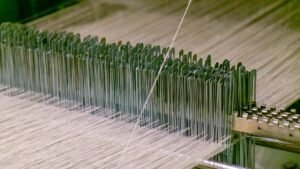Comprehensive Guide of Cheese Making
Overview
Cheese making is a fascinating and rewarding hobby that involves the transformation of milk into cheese through various processes of curdling, draining, and aging. This artisanal craft allows enthusiasts to explore different types of cheese, from soft and creamy varieties like mozzarella and ricotta to hard and aged cheeses like cheddar and gouda. Cheese making not only provides a sense of accomplishment but also offers the opportunity to experiment with flavors, textures, and techniques. Many hobbyists enjoy the science behind fermentation and the art of crafting unique cheeses, making it a fulfilling and educational pastime.
History
The history of cheese making dates back over 7,000 years, with evidence of cheese production found in ancient Mesopotamia and Egypt. Early cheese was likely made by accident when milk was stored in containers made from animal stomachs, leading to natural curdling. Throughout the centuries, cheese making techniques evolved, influenced by regional practices and available resources. The Romans played a significant role in spreading cheese making across Europe, leading to the development of distinct regional cheeses. By the Middle Ages, monasteries became centers of cheese production, refining techniques and creating some of the first documented cheese recipes. Today, cheese making continues to thrive, with both traditional methods and modern innovations coexisting in the culinary world.
Popularity and Demographics
Cheese making has gained popularity as a hobby in recent years, appealing to food enthusiasts, home cooks, and those interested in sustainable living. Many people are drawn to the idea of creating their own cheese at home, allowing for customization and control over ingredients. Workshops and classes have emerged, catering to a diverse audience, including families, young adults, and retirees. According to a survey by the Specialty Food Association, approximately 20% of Americans have tried making cheese at home, with a notable increase in interest among millennials and Gen Z. The rise of social media platforms has also contributed to this trend, as hobbyists share their cheese making experiences and creations, fostering a community of cheese lovers and makers.
Sponsored Hobbyists and Vendors
Become a Sponsor!
Affiliate Disclaimer: Throughout some sections below, Hobby Spotlight may suggest some tools, equipment or material using affiliate links. By purchasing any of those items, Hobby Spotlight may earn a small commission. This helps fund our website, content and services without directly charging our users.
Getting Started
Essential Cheese Making Tools:
Beginner
- Cheese Making Kit: A complete kit with all the basic ingredients and tools needed to make cheese at home.
- Thermometer: A kitchen thermometer to monitor the temperature of milk during the cheese-making process.
- Cheese Mold: A mold used to shape the cheese curds into the desired form.
- Ladle: A long-handled ladle for stirring and transferring curds.
- Butter Muslin: A fine cheesecloth used for draining whey from curds.
Intermediate
- pH Meter: A device to measure the acidity of the cheese, important for flavor and texture.
- Cheese Press: A press used to apply pressure to cheese curds for shaping and moisture removal.
- Curd Knife: A specialized knife for cutting curds into uniform pieces.
- Ripening Box: A controlled environment box for aging cheese at the right temperature and humidity.
- Cheese Aging Rack: A rack designed to hold cheese during the aging process, allowing for proper airflow.
Basic Requirements and Initial Setup:
- Cheese Making Kit: A basic kit typically includes a thermometer, cheese mold, rennet, and cheesecloth. These tools are essential for the cheese-making process.
- Quality Milk: The foundation of good cheese is high-quality milk, preferably raw or pasteurized, without additives. Cow, goat, or sheep milk can be used depending on the desired cheese type.
- Clean Workspace: A sanitized and organized area is crucial to prevent contamination. Ensure all equipment is thoroughly cleaned and sterilized before use.
Fundamental Skills to Learn:
- Milk Heating: Understanding how to heat milk to the right temperature is vital for proper curd formation.
- Curd Cutting: Learning to cut curds into the right size affects the texture and moisture content of the final cheese.
- Whey Separation: Mastering the process of draining whey from curds is essential for achieving the desired cheese consistency.
- Salting Techniques: Knowing how to salt cheese properly enhances flavor and helps with preservation.
- Aging and Storage: Understanding the conditions required for aging cheese, including temperature and humidity, is crucial for flavor development.
Sub-Hobby/Common Activities:
- Fresh Cheese Making: Creating soft cheeses like ricotta or mozzarella that require minimal aging.
- Hard Cheese Production: Involves making cheeses like cheddar or gouda that require aging for flavor development.
- Flavored Cheese Experimentation: Adding herbs, spices, or other flavorings to create unique cheese varieties.
- Cheese Pairing: Learning to pair homemade cheeses with wines, fruits, and other foods for enhanced tasting experiences.
- Cheese Platter Presentation: Developing skills in arranging and presenting cheese platters for gatherings and events.
Terminology:
- Curds: The solid part of milk that forms during the cheese-making process, consisting of proteins and fats.
- Whey: The liquid byproduct that remains after curds are formed, often used in other recipes or as animal feed.
- Rennet: An enzyme used to coagulate milk, causing it to separate into curds and whey.
- Pasteurization: The process of heating milk to kill harmful bacteria, which is essential for safety in cheese making.
- Acidification: The process of adding acid (like vinegar or lemon juice) to milk to help curd formation.
- Brining: The process of soaking cheese in a saltwater solution to enhance flavor and preservation.
- Cheese Culture: Specific bacteria added to milk to aid in fermentation and flavor development.
- Affineur: A cheese expert who specializes in aging and maturing cheese to develop its flavor and texture.
- Bloomy Rind: A type of cheese rind that is soft and edible, often seen in cheeses like Brie.
- Cheese Press: A tool used to apply pressure to curds, helping to expel whey and shape the cheese.
Advanced Topics and Specializations
Advanced Tools and Equipment:
- Cheese Press: A heavy-duty cheese press designed for making hard cheeses, allowing for precise pressure control.
- Thermometer with Calibration: An accurate digital thermometer for monitoring milk temperatures during the cheese-making process.
- Cheese Aging Cave: A temperature and humidity-controlled aging cabinet for maturing cheeses to perfection.
- Curd Cutter: A specialized tool for cutting curds into uniform sizes for even whey drainage.
- pH Meter: A digital pH meter for measuring acidity levels in cheese, ensuring optimal fermentation.
Advanced Projects and Achievements:
- Artisan Cheese Production: Crafting unique cheeses such as aged cheddar, creamy brie, or tangy blue cheese, focusing on flavor profiles and aging techniques.
- Cheese Aging and Affinage: Mastering the art of aging cheese in controlled environments to develop complex flavors and textures, including experimenting with different rinds and molds.
- Cheese Pairing Events: Organizing and hosting cheese tasting events that pair homemade cheeses with wines, fruits, and artisanal breads, enhancing the overall culinary experience.
Advanced Techniques and Methods:
- Curd Cutting and Cooking: Learning the precise techniques for cutting curds to achieve desired textures and cooking them to influence moisture content and flavor.
- pH Monitoring: Utilizing pH meters to monitor acidity levels during the cheese-making process, ensuring optimal fermentation and flavor development.
- Use of Cultures and Rennet: Understanding the role of different bacterial cultures and rennet types in cheese-making, and how they affect flavor, texture, and aging.
Specializations and Niche Areas:
- Raw Milk Cheese: Focusing on the production of cheeses made from unpasteurized milk, emphasizing traditional methods and unique flavor profiles.
- Vegan Cheese Making: Creating plant-based cheeses using nuts, seeds, and other ingredients to replicate the flavors and textures of traditional cheeses.
- Cheese from Different Milk Types: Exploring the nuances of cheese-making with various milk sources, including goat, sheep, and buffalo milk.
- Flavored and Infused Cheeses: Experimenting with adding herbs, spices, and other flavorings to create unique cheese varieties.
- Cheese Sculpting: Engaging in the artistic side of cheese-making by sculpting cheese into decorative shapes for events and displays.
Future Trends and Innovations:
- Increased interest in sustainable and ethical cheese production practices, including animal welfare and environmental impact.
- Growth of artisanal and small-batch cheese producers, focusing on local ingredients and traditional methods.
- Adoption of technology in cheese-making, such as automated monitoring systems for fermentation and aging processes.
- Exploration of global cheese varieties and techniques, leading to innovative fusion cheeses that blend different cultural influences.
- Rising popularity of cheese subscription services that deliver curated selections of artisanal cheeses to consumers.
Technology Integration:
- Smart Cheese-Making Equipment: Utilizing temperature and humidity-controlled cheese-making kits that allow for precise monitoring and adjustments.
- Online Cheese-Making Courses: Accessing virtual classes and tutorials that provide step-by-step guidance for aspiring cheese makers.
- Mobile Apps for Cheese Pairing: Using apps that suggest food and beverage pairings based on specific cheese types to enhance culinary experiences.
- 3D Printing for Cheese Molds: Employing 3D printing technology to create custom molds for unique cheese shapes and designs.
- Social Media for Cheese Communities: Engaging with online communities and platforms to share recipes, techniques, and experiences with fellow cheese enthusiasts.
Further Learning and Resources
Books:
- Home Cheese Making by Ricki Carroll: An accessible guide for beginners that covers the basics of cheese making with easy-to-follow recipes and techniques.
- The Art of Cheese Making by David Asher: A comprehensive introduction to the craft of cheese making, focusing on natural methods and simple recipes for beginners.
- Mastering Artisan Cheesemaking by Gianaclis Caldwell: A detailed exploration of artisan cheese making techniques, ideal for those looking to refine their skills and create complex cheeses.
- The Science of Cheese by Michael H. Tunick: A scientific approach to cheese making that delves into the chemistry and biology behind the process, suitable for advanced enthusiasts.
Websites:
- Cheese Making, https://www.cheesemaking.com – A comprehensive resource for cheese making supplies, recipes, and tutorials for all skill levels.
- Culture: The Word on Cheese, https://www.culturecheesemag.com – A magazine dedicated to cheese lovers, featuring articles, recipes, and cheese-related news.
- The Cheese Maker, https://www.thecheesemaker.com – Offers kits, supplies, and educational resources for home cheese makers.
- Cheese Forum, https://www.cheeseforum.org – An online community where cheese enthusiasts can share recipes, tips, and experiences.
- Home Cheese Making, https://www.homecheesemaking.com – Provides guides, recipes, and resources for making cheese at home.
Courses:
- Cheese Making 101 by Udemy, https://www.udemy.com/course/cheese-making-101 – A beginner-friendly course covering the basics of cheese making, including equipment and techniques.
- Artisan Cheese Making by Craftsy, https://www.craftsy.com/class/artisan-cheese-making – Learn to make a variety of artisan cheeses with step-by-step video instructions.
- Advanced Cheese Making Techniques by The Cheese School, https://www.cheeseschool.com – An advanced course focusing on complex cheese styles and aging techniques.
- Online Cheese Making Course by The Kitchn, https://www.thekitchn.com/cheese-making-course – A comprehensive online course that covers various cheese types and methods.
- Cheese Making Workshops by The Cheese Maker, https://www.thecheesemaker.com/workshops – Hands-on workshops for all levels, focusing on different cheese styles and techniques.
Content Creators and Community
Content Creators:
- Cheese Making 101 (YouTube): This channel offers comprehensive tutorials on various cheese-making techniques, from basic to advanced, making it accessible for beginners and experienced cheese makers alike.
- Mike’s Cheese (Instagram): A passionate cheese maker sharing his journey, tips, and mouth-watering cheese creations, along with engaging stories about the cheese-making process.
- The Cheese Maker (Website): A resourceful site providing recipes, kits, and educational content for cheese enthusiasts, along with a blog featuring tips and tricks for successful cheese making.
Online Forums and Social Media Groups:
- Reddit – /r/CheeseMaking: A community for sharing recipes, troubleshooting, and discussing all things related to cheese making.
- Facebook Cheese Making Groups: Various groups where hobbyists exchange tips, share their cheese creations, and seek advice from fellow cheese makers.
- Cheese Lovers (Discord): An interactive platform for real-time discussions, recipe sharing, and support among cheese enthusiasts.
- Instagram Hashtags (#cheesemaking, #homemadecheese): Follow these hashtags to discover inspiring cheese creations and techniques from around the world.
- Pinterest Boards: Explore a plethora of cheese-making recipes and ideas curated by passionate cheese makers.
Local Clubs and Organizations:
- Community Cheese Making Workshops: Many local culinary schools and community centers offer classes where enthusiasts can learn and practice cheese-making techniques together.
- Local Dairy Farms: Some farms host cheese-making classes and events, providing hands-on experience with fresh ingredients.
- Artisan Cheese Guilds: Organizations that promote cheese-making skills, offer mentorship, and host competitions for local cheese makers.
- Meetup Groups: Platforms like Meetup.com often feature local cheese-making clubs where members can gather to share recipes and techniques.
- Farmers’ Market Associations: Support local cheese makers by providing networking opportunities and showcasing their products.
Events, Meetups, and Conventions:
- American Cheese Society Conference: An annual event that brings together cheese makers, enthusiasts, and industry professionals for workshops, tastings, and networking.
- Local Cheese Festivals: Many regions host festivals celebrating local cheese, featuring tastings, workshops, and competitions.
- Cheese Making Workshops: Various culinary events offer hands-on cheese-making workshops led by experienced cheese makers.
- Food and Wine Festivals: These festivals often include cheese-making demonstrations and tastings, showcasing the art of cheese making.
- Cheese Conventions: Events that combine competitions, networking, and product showcases for cheese makers and enthusiasts.
Associated Hobbies
- Fermentation: Fermentation is a key process in cheese making, and many enthusiasts also explore other fermented foods like yogurt, sauerkraut, and kombucha, enhancing their understanding of microbial processes.
- Cooking: Cheese making often leads to a greater interest in cooking, as homemade cheese can be used in various recipes, inspiring hobbyists to experiment with new dishes and flavors.
- Gardening: Many cheese makers grow their own herbs and vegetables to pair with their cheeses, creating a holistic approach to food production that includes both cheese and garden-fresh ingredients.
- Pairing and Tasting: Cheese enthusiasts often delve into the art of pairing cheese with wines, fruits, and other foods, enhancing their tasting experiences and developing a refined palate.
- Food Preservation: The skills learned in cheese making can extend to other forms of food preservation, such as pickling and curing, allowing hobbyists to explore a wider range of culinary techniques.
- Artisan Bread Making: Many cheese makers enjoy baking artisan bread to accompany their cheeses, creating a delightful combination that enhances the overall tasting experience.
- Food Photography: Capturing the beauty of homemade cheeses and their pairings can become a passion for many, leading to an interest in food styling and photography.
- Cheese Aging and Storage: Understanding the aging process of cheese can lead to a deeper interest in how to properly store and age different types of cheese, which can be a rewarding aspect of the hobby.
Cost and Budgeting
Initial Investment and Ongoing Costs:
- Initial Investment: The cost to start cheese making can vary depending on the type of cheese you want to produce and the equipment you need. A basic cheese making kit, which includes essential tools like a thermometer, cheese mold, and rennet, can range from $50 to $150. If you opt for more advanced equipment, such as a cheese press or specialized molds, the initial investment can increase to $300 or more.
- Ongoing Costs: The primary ongoing costs include ingredients such as milk, cultures, and rennet. Depending on the type of cheese, the cost of milk can range from $3 to $10 per gallon, while cultures and rennet can add an additional $1 to $5 per batch. Other costs may include storage supplies like wax or vacuum seal bags for aging cheese, which can vary based on your production scale.
Budget-Friendly Options:
- DIY Equipment: Many cheese making tools can be made at home or repurposed from kitchen items. For example, a simple colander can serve as a cheese mold, and a kitchen thermometer can be used to monitor temperatures.
- Bulk Ingredients: Purchasing milk and cultures in bulk can significantly reduce costs. Look for local dairy farms or co-ops that offer discounts for larger quantities.
- Online Tutorials: Utilize free online resources, such as YouTube videos and cheese making blogs, to learn techniques and recipes without the need for expensive classes or workshops.
Where to Buy:
- Local Dairy Farms: Many local farms sell fresh milk and may also offer cheese making supplies or classes, providing a great way to support local businesses.
- Specialty Cooking Stores: Stores that focus on cooking and baking supplies often carry cheese making kits and ingredients, along with knowledgeable staff who can offer advice.
- Online Retailers: Websites like Amazon, CheeseMaking.com, and New England Cheesemaking Supply Company provide a wide range of cheese making supplies and ingredients, often with customer reviews to help guide your purchases.
Money Making
How to Turn the Hobby into a Profession or Side Hustle:
- Artisan Cheese Maker: Start your own cheese-making business by producing small batches of artisanal cheese. You can sell your products at local farmers’ markets, specialty food stores, or online. Focus on unique flavors and high-quality ingredients to attract customers who appreciate gourmet cheese.
- Cheese-Making Workshops: Share your knowledge and passion for cheese making by offering workshops. You can host classes in your home, community centers, or even online. Teach participants the basics of cheese making, from curdling milk to aging cheese, and provide them with hands-on experience.
- Cheese Tasting Events: Organize cheese tasting events where you can showcase different types of cheese, pair them with wines or other foods, and educate attendees about the cheese-making process. This can be a fun and interactive way to engage with cheese enthusiasts and promote your products.
- Cheese Blog or YouTube Channel: Create a blog or YouTube channel dedicated to cheese making and tasting. Share recipes, tips, and tutorials, and build a community of cheese lovers. Monetize your content through sponsorships, affiliate marketing, and ads, turning your passion into a profitable venture.
- Cheese Subscription Box Service: Launch a subscription box service that delivers a curated selection of artisanal cheeses to customers’ doors each month. Include tasting notes, pairing suggestions, and information about the cheese makers to enhance the customer experience and build a loyal subscriber base.
Benefits and Enjoyment
Physical, Mental, and Social Benefits:
- Physical Activity: Cheese making involves various physical activities, such as stirring, lifting heavy pots, and kneading curds. This hands-on process can improve strength, coordination, and dexterity.
- Mental Engagement: The art of cheese making requires focus and attention to detail, which can enhance cognitive skills. The process of experimenting with different techniques and flavors can also stimulate creativity and problem-solving abilities.
- Social Connection: Cheese making can be a communal activity, bringing friends and family together. Sharing the experience of creating cheese, hosting tastings, or participating in workshops fosters social bonds and creates lasting memories.
Success Stories and Inspirational Examples:
- Gordon Edgar: A well-known cheese maker and author, Gordon Edgar turned his passion for cheese into a successful career. He has written books on cheese making and has been influential in promoting artisan cheese in the United States.
- Mary Keehn: Founder of Cypress Grove Chevre, Mary Keehn started making cheese in her home kitchen and grew her business into a nationally recognized brand. Her success story inspires many aspiring cheese makers to pursue their passion.
- David Asher: An advocate for traditional cheese making methods, David Asher has gained recognition for his workshops and books on raw milk cheese. His approach emphasizes sustainability and the importance of local ingredients, inspiring many to embrace artisanal cheese making.
Ways to Enjoy and Grow in the Hobby:
- Experiment with Different Cheeses: Try making a variety of cheeses, from fresh mozzarella to aged cheddar. Experimenting with different techniques and ingredients will enhance your skills and keep the hobby exciting.
- Join a Cheese Making Class: Enroll in local workshops or online courses to learn from experienced cheese makers. These classes provide valuable hands-on experience and the opportunity to connect with fellow enthusiasts.
- Start a Cheese Tasting Group: Gather friends or family to explore different cheeses together. This social aspect not only enhances your appreciation for cheese but also allows you to share your creations and learn from others.
Challenges and Solutions
Common Challenges Faced by Hobbyists:
- Access to Quality Ingredients: Cheese making requires specific ingredients, such as high-quality milk and cultures, which may not always be readily available. Hobbyists may struggle to find reliable sources for these essential components.
- Complexity of Techniques: The process of making cheese can be intricate, involving various techniques and steps that can be overwhelming for beginners. Understanding the science behind cheese making is crucial for success.
- Time Commitment: Cheese making can be time-consuming, with some cheeses requiring hours or even days to mature. Balancing this time commitment with other responsibilities can be challenging for hobbyists.
Tips for Overcoming These Challenges:
- Source Local Ingredients: Look for local farms or specialty stores that offer high-quality milk and cheese-making supplies. Building relationships with local producers can ensure a steady supply of fresh ingredients.
- Start Simple: Begin with basic cheese recipes that require fewer steps and ingredients. As you gain confidence and experience, gradually explore more complex cheeses and techniques.
- Plan Ahead: Set aside dedicated time for cheese making and plan your sessions around your schedule. This will help you manage your time effectively and ensure you can fully enjoy the process.
Safety Considerations and Best Practices:
- Ensure all equipment and surfaces are sanitized before starting the cheese-making process to prevent contamination.
- Use pasteurized milk if you are new to cheese making, as it reduces the risk of harmful bacteria.
- Follow recipes carefully and measure ingredients accurately to achieve the desired results.
- Store cheese properly in a cool, dry place or in the refrigerator to maintain freshness and prevent spoilage.
- Be aware of food allergies and dietary restrictions when sharing your homemade cheese with others.
Conclusion and Encouragement
Recap of Key Points:
- Cheese making is a rewarding hobby that allows you to create a variety of cheeses at home, from soft cheeses like ricotta to hard cheeses like cheddar.
- The process involves simple ingredients such as milk, rennet, and cultures, making it accessible for beginners and experienced cooks alike.
- Understanding the science behind cheese making can enhance your skills, as factors like temperature, acidity, and aging all play crucial roles in the final product.
- Cheese making can be a social activity, perfect for gatherings where you can share your creations and even host cheese tasting events.
- With practice, you can develop your unique recipes and flavors, turning cheese making into a creative outlet that reflects your personal taste.
Encouragement to Start and Enjoy the Hobby:
- Starting cheese making is easier than you might think. With just a few basic tools and ingredients, you can begin your journey into the world of homemade cheese.
- This hobby not only provides delicious results but also offers a sense of accomplishment as you see your efforts transform into a tasty product.
- Cheese making can be a fun and educational experience for families, teaching children about food science and the importance of patience and precision in cooking.
Final Tips and Motivational Thoughts:
- Don’t be discouraged by initial failures; cheese making is an art that improves with practice. Each batch teaches you something new.
- Experiment with different types of milk and flavorings to discover your favorite combinations, and don’t hesitate to document your process for future reference.
- Join online communities or local cheese making classes to connect with fellow enthusiasts, share tips, and gain inspiration for your next cheese project.

















